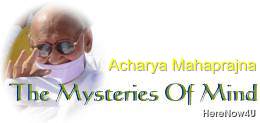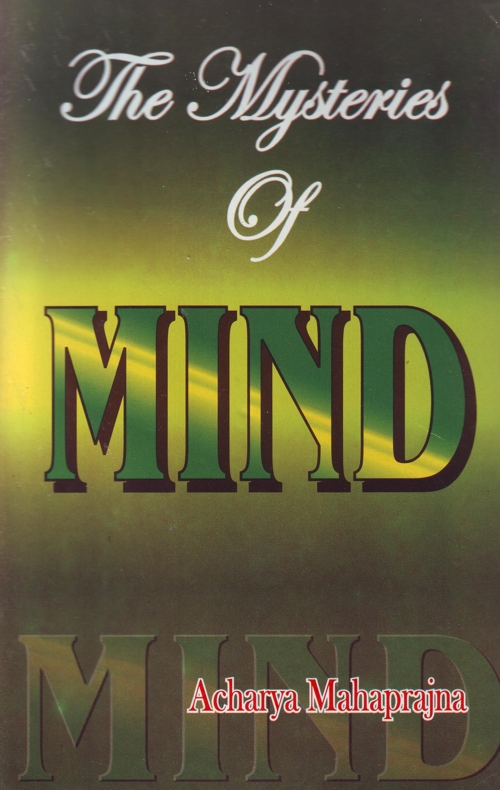
The practice of preksa meditation breaks our torpor and makes the mind wakefully attached to truth and moral discipline. Such a mind cannot be deluded by anybody. In this respect mantras or charms are very useful. We employ charms to remove mental and physical diseases. We can make ourselves pure with the help of Bhavana which can give us mental and physical health. When consciousness has been aroused, holy feelings rise in our minds and make our thought realistic. With such thoughts we proceed to perceive the soul. Feeling, thoughts and perception become immersed in consciousness and the mind becomes free from attachments and aversions and remains neutral. It stops reacting. This is the way to get rid of all problems and miseries.
False consciousness makes us indulge in sense pleasures. This happens at the level of the unconsciousness. We become deluded by the waves of electric energy flowing through the object, the fingers, eyes and speech. This happens at the level of consciousness associated with Bhavana.
Our mind establishes conscious relations with objects and men, seeks that which is beneficial and renounces that which is harmful. This cannot be done until we have freed ourselves from delusions caused by feeling. We engage ourselves in free thinking. This happens at the level of consciousness associated with thinking.
We are not satisfied with the external forms of things and try to comprehend their subtleties. This happens at the level of consciousness associated with perception. Having made the unconscious conscious, we employ the power of perception to self-perception.
Consequences of preksa meditation:
- Balance between action and inaction-physical balance.
- Mindfulness towards the ideal, synthesis of action and thinking.
- Development of willpower and determination.
- Direct perception or experience of truth.
- Development of the state of being a spectator.
- Development of consciousness free from reactions and the sense of neutrality and equality in all situations.
- Mental balance.
- Feeling of equality in conduct and politeness in behaviour.
- Synthesis of contradiction between the individual and the society.
- Manifestation of super-mental consciousness.
- Freedom from passionate indulgence.
- Eradication of diseases produced by tensions.
- Formation of a mentally and physically health personality.
- Thoughtlessness leads to concentration which trains the knowledge tissues and muscles
Preksa meditation is a natural and simple method of mental training and of making the mind conscious an aroused.
End Of Book
 Acharya Mahaprajna
Acharya Mahaprajna

